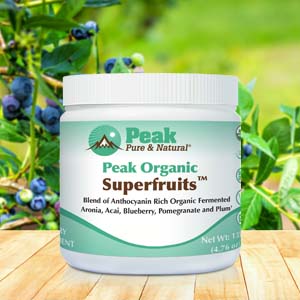Get Easy Health Digest™ in your inbox and don’t miss a thing when you subscribe today. Plus, get the free bonus report, Mother Nature’s Tips, Tricks and Remedies for Cholesterol, Blood Pressure & Blood Sugar as my way of saying welcome to the community!
The artery assault that happens when you go to bed late

Sleep is great medicine. The natural detoxification processes that go on when you sleep help protect your body from all manner of ailments, including Alzheimer’s disease, unhealthy weight gain, diabetes, heart disease and osteoporosis.
For many of us, however, sticking to a sleep routine where we climb under the sheets early enough to get 7 to 8 hours of sleep is hit-and-miss. Most adults rise at the same time every morning, but there can be a lot of variability as to when we go to sleep each night.
That may not seem like a big deal, but the consequences of getting only five to six hours of sleep can be dire. Even a mild chronic sleep deficit can raise your risk of heart disease later in life. Researchers at Columbia University have been working to find out exactly why…
Vascular cells face an oxidative assault
The researchers enrolled healthy women who normally sleep seven to eight hours a night for the 12-week study. For six weeks, the women slept according to their usual routine. Then, for six weeks they went to bed 1.5 hours later than usual.
And the results were stunning…
Researchers found that after just six weeks of delaying their normal bedtime by just 90 minutes, endothelial cells that line blood vessels were inundated with oxidants. Also known as free radicals, these oxidants cause chronic inflammation and cellular damage.
Well-rested cells can produce antioxidants to eradicate these destructive free radicals. But this response fails in sleep-restricted cells. The cells then become inflamed and dysfunctional, which is the first step in developing disorders like cardiovascular disease.
“This is some of the first direct evidence to show that mild chronic sleep deficits cause heart disease,” says study leader Dr. Sanja Jelic, a Columbia professor and director of the Center for Sleep Medicine at Columbia.
Jelic notes that prior studies showing a connection between sleep and heart health have been epidemiological, meaning they track a disease’s prevalence and try to identify causes. “But these studies could be tainted by many confounders that cannot be identified and adjusted for,” she says.
Many sleep studies also examined the effects of a few nights of profound sleep deprivation, rather than a mild chronic sleep deficit.
“Most people get up around the same time each day but tend to push back their bedtime one to two hours,” Jelic says. “We wanted to mimic that behavior, which is the most common sleep pattern we see in adults.”
Getting more sleep — and antioxidants
The bottom line, Jelic says, is that many health problems like heart disease could be solved if people get at least seven to eight hours of sleep per night.
“People who are young and healthy need to know that if they keep getting less sleep than that, they’re aggravating their cardiovascular risk,” she says.
The next step for the research team is to design a study to see if bedtime variability affects vascular cells in the same way as chronic, regular short sleep.
In the meantime, do whatever you can to get a regular good night’s sleep, including sticking to regular wake and sleep times. It may be tempting to catch up on household tasks that could keep you up past your bedtime a few nights a week—but it’s just not worth the risk.
In addition, make sure you get your hormone levels checked. An imbalance in adrenal hormones, thyroid, progesterone, testosterone, growth hormone or melatonin all could contribute to poor sleep.
It also helps to take in plenty of antioxidants. Many of the foods we eat are rich in antioxidants, particularly colorful fruits rich in resveratrol and pterostilbene, like berries and grapes (including red wine). Dark chocolate and green tea also have plenty of free radical-fighting antioxidants.
If you don’t think you’re getting enough of these antioxidant-rich foods, you can always add an antioxidant supplement to your regimen. Vitamins A, C, E and D3 all are free radical fighters. CoQ10 is especially helpful in protecting your heart health as well as neutralizing oxidants.
Editor’s note: There are perfectly safe and natural ways to decrease your risk of blood clots including the 25-cent vitamin, the nutrient that acts as a natural blood thinner and the powerful herb that helps clear plaque. To discover these and other secrets of long-lived hearts, click here for Hushed Up Natural Heart Cures and Common Misconceptions of Popular Heart Treatments!
Sources:
Not getting enough sleep? Your vascular cells are drowning in oxidants — ScienceDaily
Mild sleep restriction increases endothelial oxidative stress in female persons — Scientific Reports
What Are Sleep Deprivation and Deficiency? — National Heart, Lung, and Blood Institute














